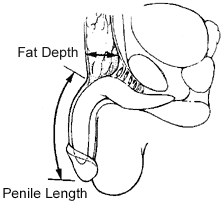
In the interests of his own safety Dr Grumble was not planning to post anything new. But Mrs Grumble is so dismayed by the polyclinic developments that, despite the risks, she has encouraged a new post on the topic. So what is there new to post about? One thing is the views of the NHS Confederation who seem to have hurriedly brought out a publication on the topic. It's of great interest to Dr Grumble who wonders just what is driving this frenzied imposition of polyclinics. Of course, what the NHS Confederation say and what the real drivers are might be quite different. Curiously, the box at the very top of the Introduction to Ideas from Darzi: polyclinics reads:

This is odd. First, because the document is called 'Ideas from Darzi' and this box reveals that it is not Darzi's idea at all. (Not that anybody thought it was.) And second, because the fact that everybody else is doing this does not mean that it is the right thing for British patients who, until recently, had the best primary care service in the world. Certainly this box is no justification whatsoever for polyclinics. It is plainly not intended for the discerning reader.
But don't worry because, according to the Confederation, the design rules that underlie the idea of the polyclinic appear to be 'fairly uncontroversial'. What are these fairly uncontroversial design rules? And, if they are uncontroversial, why is there such an outcry about polyclinics and why are they being imposed in such a heavy handed manner? If these Darzified clinics are so very wonderful why are we not all clammering for them?
The first wonderful thing about these clinics is that they will produce larger groupings of primary care professionals. Note they say 'primary care professionals'. You need to read these documents carefully. You are probably intended to think they mean doctors. But that is not what the document says. Draw your own conclusion.
Second these clinics will exploit 'economies of scale'. The relevant paragraph is short but examples given include the 'highlights of improved telephone booking'. Come on! And better access for those with learning disabilities and the mentally ill. To Dr Grumble this doesn't even sound faintly plausible. If you put more GPs (sorry - primary care professionals) together then patients with disabilities are less likely to have a GP close to where they live. These claims are disingenuous.
Third we are told the need for patients to travel to hospital will be reduced by 'relocating high volume work'. We are not given examples. One would think that high volume work, being high volume, can already be done in a group practice. The care of asthmatics, diabetics and the like would seem to be examples. So what are the conditions that polyclinics can deal with that current GPs (sorry - primary care professionals) cannot? Probably they exist but we are not told. Instead, in a very short paragraph we learn from 'Bunny Hill Primary Care Centre' that patients prefer a 'non-hospital setting' - which makes one think that perhaps they might like their current GPs' surgery. After all polyclinics do sound rather polyclinical.

Fourth we learn that polyclinics will break down the 'traditional barrier' between primary and secondary care. An example is how in Sunderland a shared approach has reduced unnecessary dermatological surgery. Now that is interesting. How could that happen? Could it be that GPs were cutting too many harmless lesions off? That doesn't sound like a very good argument for encouraging GPs to do more. But there is no reference so perhaps this interpretation is wrong.
Fifth we learn that space will be made for other services:
- community health services
- other related health services
- social care services
- leisure services
- housing services
- benefits services
Then there is another box which is presumably to enhance some key point, some killer fact. Here it is:

Here we have the implied allegation that nobody cares about the time the patient has to spend and that polyclinics would be much better. But it's nonsense isn't it? The polyclinic is more likely to be further away from the patients home. How are the elderly and disabled supposed to get there? Why this apparent interest in the young commuter? Could it be that they have money to spend on additional services in the polyclinic? But what about the killer fact in this box which is of course all the money spent on travelling to the hospital and on hospital car parking (who imposed this by the way?) all apparently because GPs cannot take blood. Come on. Mrs Grumble retired from inner city general practice 15 years ago and she cannot remember a practice that did not have a service which sped blood samples to the local hospital.
Of course, there are many arguments (
pdf) against the polyclinic idea. Here Dr Grumble was just trying to grasp from the NHS Confederation the points in favour. Sadly there don't really seem to be any. None convincing anyway.
Who are these people in the
NHS Confederation with such a great misunderstanding of primary care? Do they really have the interests of our patients at heart?









